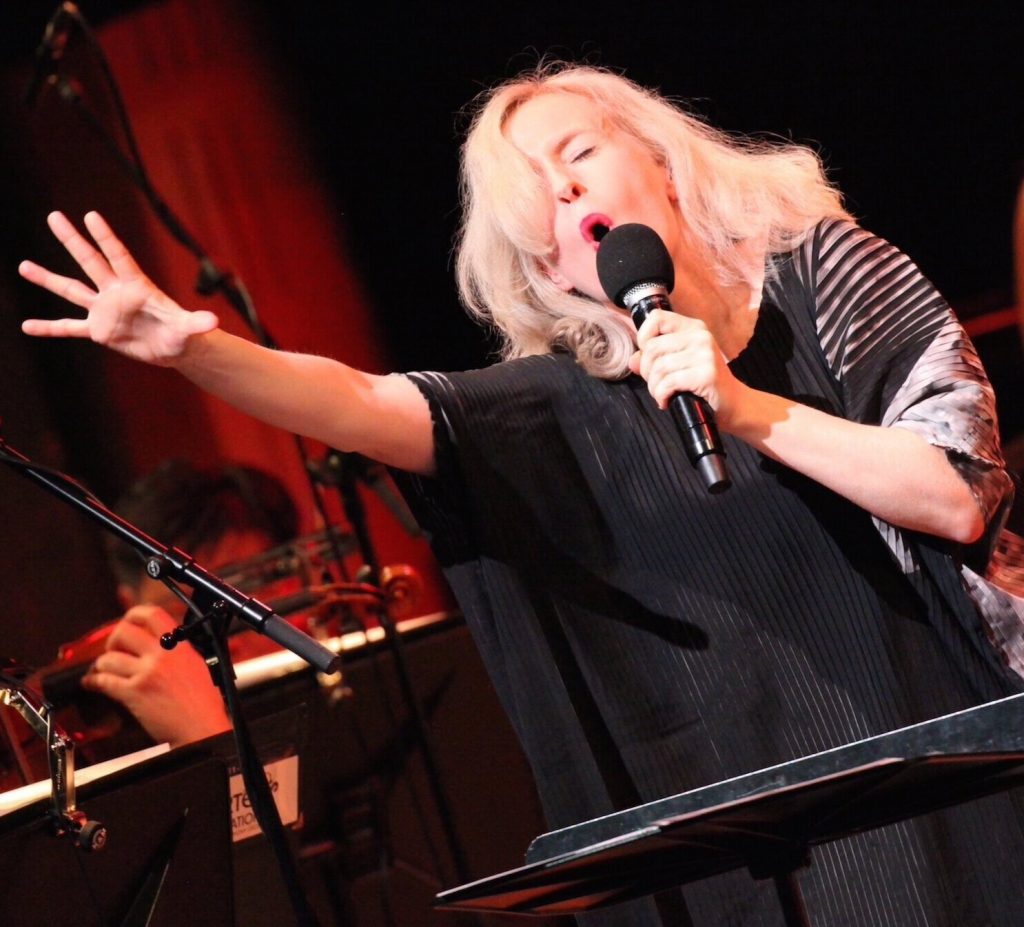by Jarrett Hoffman

•Today: flutist Alexa Still, violist Christopher Jenkins & harpist Ina McCormack at The Music Settlement, and guitarist Jason Vieaux with violinist Mari Sato at the Cleveland International Classical Guitar Festival
•Announcements: CIM students and alums head off to orchestral jobs
•Almanac: the wild imagination of composer and vocalist Jennifer Walshe
HAPPENING TODAY:
At 7:00 pm, The Music Settlement’s Signature Series presents flutist Alexa Still, violist Christopher Jenkins, and harpist Ina McCormack in a concert that includes music for solo flute as well as Debussy’s Sonata for flute, viola, and harp. Tickets are available here.
And at 7:30 at CIM’s Mixon Hall, the 2023 Cleveland International Classical Guitar Festival will present its opening recital, featuring guitarist Jason Vieaux and violinist Mari Sato in music by Albéniz, Martin, Metheny, and Piazzolla. Get tickets here.
ANNOUNCEMENTS:
The Cleveland Institute of Music has good news to share about five recent alums and students, who have all joined the ranks of noted professional orchestras. Trumpeter Daniel Lewis heads to the Indianapolis Symphony, Jessica Bergeron will be associate principal second violin with the Erie Philharmonic, violist Alex Antonio is off to the Virginia Symphony, Benjamin Mekinulov has been named principal cello of the Charleston Symphony, and cellist Kyle Anderson will be joining the Louisiana Philharmonic. Read the press release here.
TODAY’S ALMANAC:

Walshe’s career has shown her again and again to be a wildly creative artist. One example is Grúpat. Supposedly the name of an avant-garde Irish collective, it’s actually a project by Walshe in which she takes on several alter egos, all creators of music, installations, films, photography, sculpture, and fashion.
As Alex Ross writes in a profile of Walshe for The New Yorker, one of those alter egos is “a sound artist named Turf Boon, the inventor of an instrument called the Kuscheltiermarimbaphon, an array of stuffed animals to be struck with mallets…” Click here to listen to Turf Boon’s Community Choir Drawing 1029: lamh, a work that combines spooky whispering and soulful melodies over drone.
Another imaginative project is Walshe’s third solo album, A Late Anthology of Early Music Vol. 1, which uses artificial intelligence to “rework canonical works from early Western music history.”
As the record is described on Walshe’s website:
“Dadabots, the duo of CJ Carr and Zack Zukowski, trained their neural network on Walshe’s voice, producing 841 files over 40 generations of training. In A Late Anthology of Early Music, Walshe maps these files – examples of how a machine learning system learned to listen to and replicate her voice – onto key works from the Western music repertoire, the system’s understanding of her voice evolving in tandem with the evolution of a newly-constructed music history.”
You can hear the connection between these “new versions of canonical works” and the originals. But the difference is also staggering. For example, listen to Hildegard von Bingen’s “In principio omnes” from Ordo virtutum here on YouTube, then click here and scroll down to find Walshe’s — and the AI’s — hauntingly distorted take on it.
If those somehow aren’t creative enough for you, how about a fictionalized history of the Irish avant-garde? As Ross writes, that project contains “not only compositions but also films, art works, sketches, and critical reviews,” all thought up by Walshe and a group of collaborators.
If you ever felt confident that you had a sense of what art is and what it can be, Walshe is there to challenge you.




